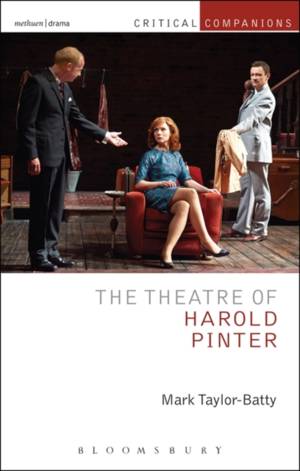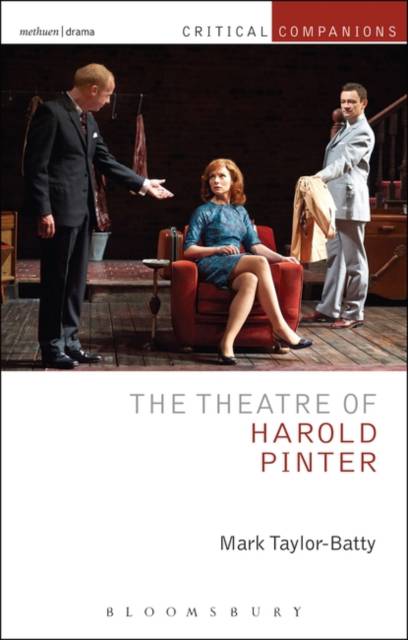
- Afhalen na 1 uur in een winkel met voorraad
- Gratis thuislevering in België vanaf € 30
- Ruim aanbod met 7 miljoen producten
- Afhalen na 1 uur in een winkel met voorraad
- Gratis thuislevering in België vanaf € 30
- Ruim aanbod met 7 miljoen producten
Zoeken
€ 64,45
+ 128 punten
Uitvoering
Omschrijving
The plays of the late Nobel laureate Harold Pinter have formed part of the canon of world theatre since the 1960s. Frequently revived on the professional stage, and studied on almost every Theatre Studies course, his importance and influence is hard to overestimate. This Critical Companion offers an assessment of Pinter's entire body of work for the stage, appraising his skill as a dramatist and considering his impact and legacy.
Through a clear focus on issues of theatricality and the effect of the plays in performance The Theatre of Harold Pinter considers Pinter's chief narrative concerns and offers a unifying theme through which over four decades of work may be understood. Plays are considered in themed chapters that follow the chronological sequence of work, illuminating the development of his aesthetic and concerns. The volume features too a series of essays from other leading scholars presenting different critical perspectives on the work, including Harry Burton on Pinter's early drama; Ann Hall on Revisiting Pinter's Women; Chris Megson on Pinter's Memory Plays of the 1970s, and Basil Chiasson on Neoliberalism and Democracy.Specificaties
Betrokkenen
- Auteur(s):
- Uitgeverij:
Inhoud
- Aantal bladzijden:
- 320
- Taal:
- Engels
- Reeks:
Eigenschappen
- Productcode (EAN):
- 9781408175309
- Verschijningsdatum:
- 8/05/2014
- Uitvoering:
- Paperback
- Formaat:
- Trade paperback (VS)
- Afmetingen:
- 137 mm x 216 mm
- Gewicht:
- 408 g

Alleen bij Standaard Boekhandel
+ 128 punten op je klantenkaart van Standaard Boekhandel
Beoordelingen
We publiceren alleen reviews die voldoen aan de voorwaarden voor reviews. Bekijk onze voorwaarden voor reviews.








